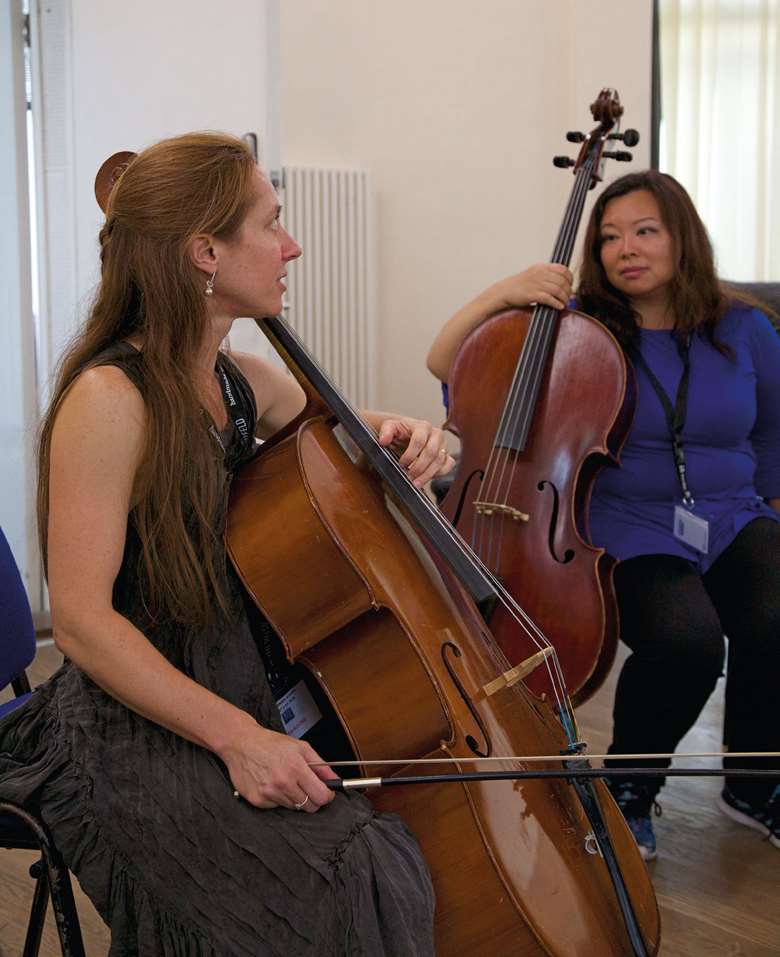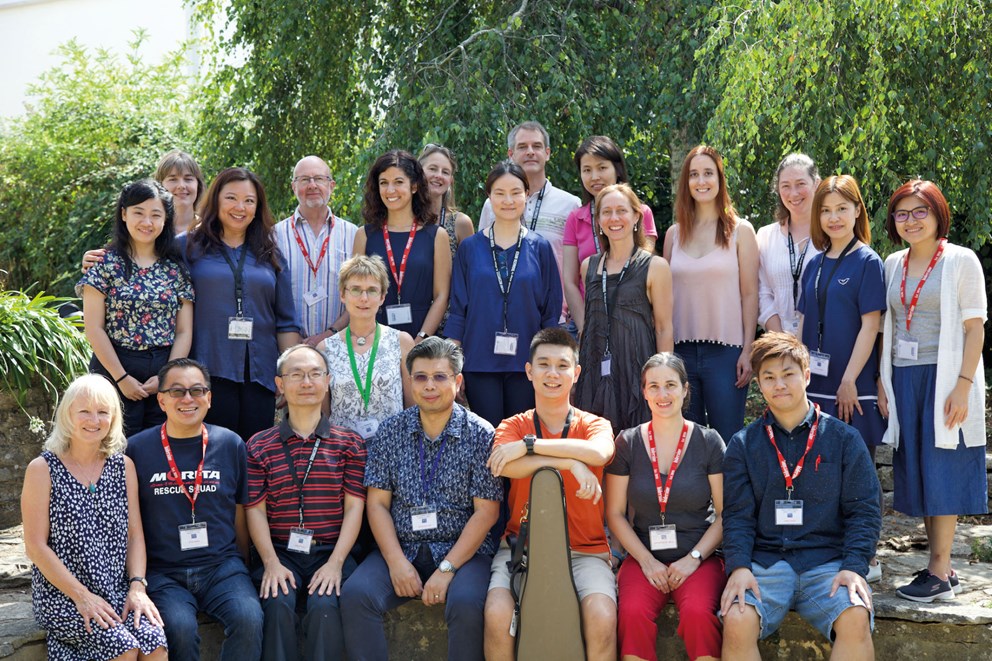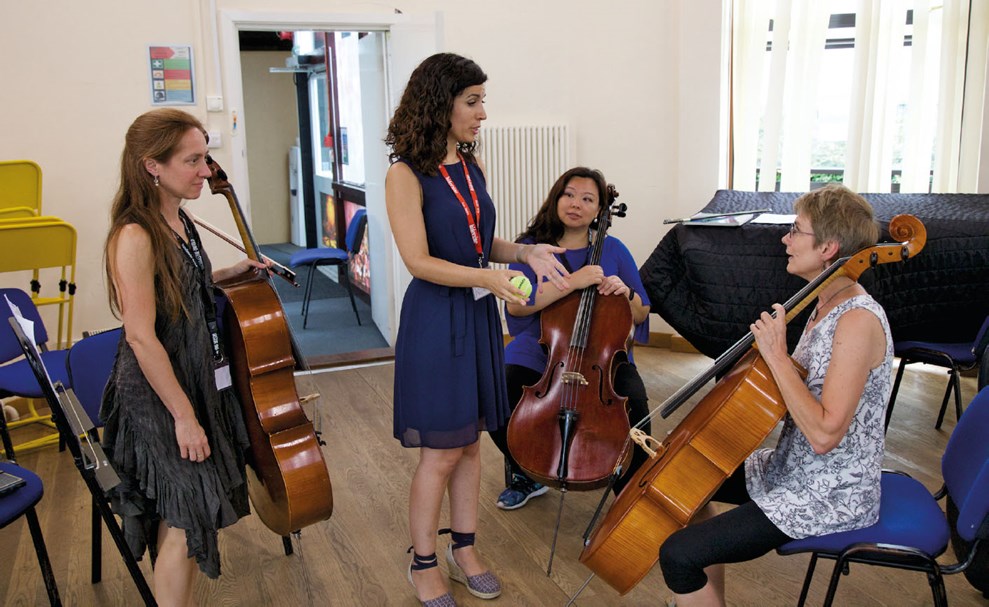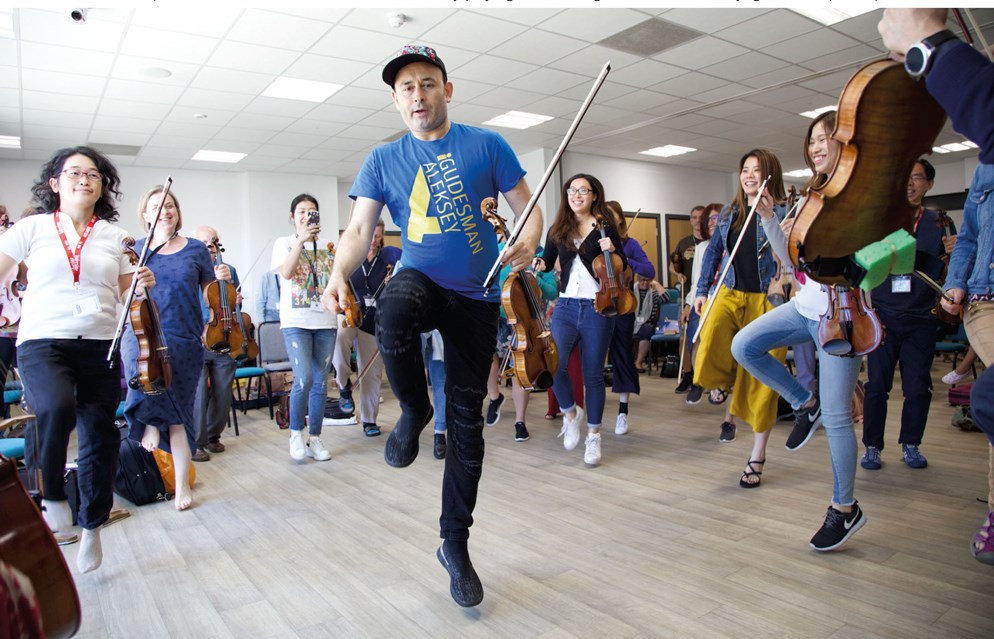Instrumental change: Teaching courses
Chris Walters
Monday, October 1, 2018
A new specialist teaching course at master's level – the ESTA Post Graduate Certificate – is taking professional development up a notch, as Chris Walters discovers.

Given all the political talk about what makes a rounded music education, training for instrumental and vocal teachers remains a relatively underdeveloped area. In the last few years, however, a small number of providers have launched courses, including Trinity College London's Certificate for Music Educators and Trinity Laban's Teaching Musician MA, both of which feed into the same ecosystem as the long-standing Royal Northern College of Music PGCE course for instrumental teachers, run in partnership with Manchester Metropolitan University.
Now there is a new option: an instrument-specific teaching course at master's level, the ESTA Post Graduate Certificate (PG Cert). The European String Teachers Association (ESTA), has teamed up with Chichester University to offer a formally validated Level 7 qualification, currently in string teaching but with plans to include other instrument families in the future.
Richard Crozier is the course leader and he sees the programme as ‘very significant, because rather than being a generic music education qualification, it means that teachers can actually focus on the instrument they teach. It was really born out of the absence of anything else in the marketplace, and the fact that ABRSM is not offering larger professional development courses.’
Crozier was formerly director of professional development at ABRSM, and although he has been retired for some years now, readers may remember him as the driving force behind ABRSM's now-discontinued Certificate of Teaching course. This offered instrumentally focussed elements with both distance and residential learning, and the ESTA PG Cert takes a similar approach.
Reaching out
‘We're on our second cohort of students now, with 16 on board,’ says Crozier. ‘They started in May and they came over in August for the summer school. We've got some from China, Hong Kong, Singapore, the UK, Belgium and Italy – all bowed strings. In 2019 we open out to piano and this time the course will start in August, with a week of summer school first. We've got the go-ahead to open up to other instruments – woodwind, brass, plucked strings, vocal, percussion – in response to demand.’
I ask Crozier why instrument-specific teaching skills are so important. ‘It's about how to develop technique on the instrument without putting technique as the holy grail. That's why we've tried to say: technique's terribly important, you can't play without technique, but very few children come through the door to learn the best technique on the violin or piano. Most of them want to play tunes, so finding the route to enable them to do that and develop a secure technique in a positive and motivational environment is very important, as is helping them to play music musically at whatever level they're able to achieve that.’

The 2018-19 cohort at the summer school, University of Chichester
Course content
The course covers four core units: teaching strategies for string teachers, teaching effective technique for bowed strings, learning to play bowed strings, and developing effective curricula for string teaching. Additional units cover safeguarding, equality and inclusion, and promoting positive behaviour. Assessment is variously through essay, live presentation, recorded lesson observation, analysis of others' lessons, case studies of students' own teaching, and the development of lesson plans and schemes of work. Delivery is through webinars, mentor contact and the residential summer school. The course takes 12 months to complete with one cohort per year. For 2019-20, course fees are £3,250 for UK residents and £3,750 for non-UK residents. Fees include the cost (excluding travel) of attending the summer school with full board.
International students seem to be a particular focus. ‘We've already got two enrolments for 2019,’ says Crozier. ‘One comes from our recent visit to Australia where we spoke at the Australian Strings Association conference. We're also getting a lot of interest from higher education internationally – we've got meetings with reference to potential collaborations lined up in Singapore and Shanghai. I think the general music education landscape around the world lacks the specific focus on instruments, and we're offering something that can help with that. We're also opening up a certificate for teaching course in Hong Kong – the ESTA foundation certificate, which is more like a Level 4 or 5 course. There's a lot of stuff going on and for a small organisation it's busy!’

Left to right: Laura Richie, assistant course leader Cathy Elliott, and students Winny and Helena
I ask about teaching context – does the course cover whole-class teaching as well as one to one? ‘Whatever the teacher's context, they need to be able to adapt to deliver in that context,’ says Crozier. ‘For example, one student this year felt when she applied that she wasn't the right sort of person because she works almost exclusively with very young children, most of whom have severe special needs. I reassured her that that isn't a concern for us. The fact that people see lower levels of playing achievement as something that might divide teachers pursuing this sort of programme says something big about music education and where we've gone wrong.’

ESTA PG Cert students join ESTA summer school students for a lively playing and dancing session with Aleksey Igudesman (centre)
‘We think that there's a massive gap between the ability to play something and the ability to teach,’ says Crozier, when asked about the fundamental principle behind good teacher training. ‘If you're going to work in a marketplace where you're dealing with all comers on your instrument, you need more and more teaching strategies. Plus, teaching is a very isolated job and we know that teachers want to be with other people and work with them. Despite the fact that it's a mainly online course, there's plenty of opportunity for them to do that.’
For more information, please visit www.estaeducation.co.uk which launches on 1 October.

